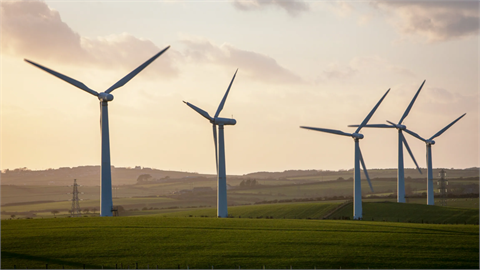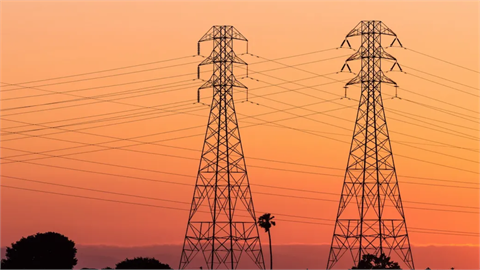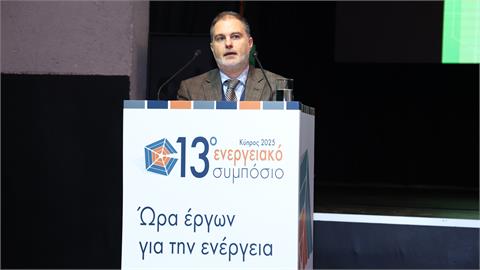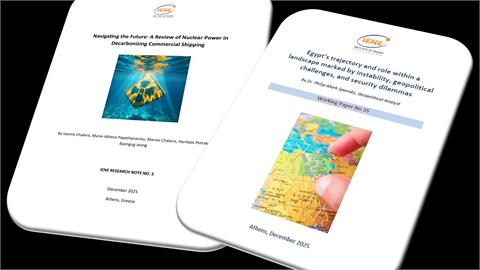Judging from the number of participants and the many inquiries which the Institute received after the event, the Webinar on “ Energy Security in SE Europe in View of Great Geopolitical Tensions” which the IENE organised on the afternoon of December 9 proved most opportune and highly relevant in view of latest developments. In fact the event was convened a day after the rather abrupt fall of the Asad regime in Syria and the coming into power of the Islamist Hayat Tahrir al-Sham group backed by elements of the Syrian National Army.

Following introductory remarks by the Chairman of the Institute, Costis Stambolis and by the moderator of the first panel and well known energy specialist John Roberts, a presentation was made by Dr. William Gillett who is the EASAC Energy Programme Director. With EASAc standing for European Academies Science Advisory Council. Since the start of 2024 EASAC has been working on Energy Security having assembled an impressive number of European experts who are contributing to a very comprehensive report which the Council is preparing. Once published and presented the report is likely to have an important impact on European thinking on the matter. As Dr. Gillett explained there are three key policy options which the EASAC report considers. The first one concerns the phasing out of fossil fuels and the wider use of sustainable energies. The second one aims to strengthen energy infrastructure, while the third one examines the feasibility of domestic production of energy systems and fuels.
The full presentation by Dr. William Gillett together with the other contributions can be seen here. Professor Ionut Purica, member of the PM’s Advisory Council for Sustainable Development,Member of the Romanian Academy and an IENE Partner, followed with an exposition on the costs of energy system security in Romania and identified the contradictions of the currently pursued policies. Furthermore he stressed the important role that nuclear power can play, and the need of technical innovation and the further development of the Circular Economy.
Dr. Yurdakul Yigiguden, independent Energy Advisor, former Coordinator of OSCE’s economic and environment activities and an IENE partner in Turkiye
commented on the subject of energy security both from a Turkish perspective but also at European level. Ms.Alexia Tasouli, an Athens based journalist and Diplomatic Correspondent commented on all previous presentations while stressing the diplomatic angle in the whole energy security debate, and how energy considerations are at the heart of national and regional energy security policies.
The second part of the Webinar was moderated by Mr.Christos Dimas, the Deputy Chairman of IENE and head of the Institute’s Energy and Geopolitics committee. Following an introduction by Christos Dimas the floor was taken by Dr.Amit Mor, CEO of Eco Energy Financial & Strategic Consulting and Senior Lecturer at Reichman University in Israel. Dr.Mor,who is also IENE’s partner in Israel, provided a detailed briefing on the fast moving situation in the Middle East, Israel’s role and the changing energy security scene in the broader region. A presentation by Dr. Phillip-Mark Spanides followed, where he focused on the reshaping of global geopolitics and the energy landscape after the US elections.
The Webinar concluded with an intervention by Dr.Stavri Dhima, a Tirana based independent Energy and Risk Assessment Consultant and the IENE Partner in Albania. Prof.Dhima addressed the issue of the main challenges facing Albania’s Energy Security in relation to energy source diversification and regional integration. A wide ranging discussion followed between the panelists but also taking questions from Webinar participants. As John Roberts mentioned in his concluding remarks the issue of energy security has definitely moved upscale in terms of prominence as it is now part of national strategies but also at EU level. There appears, noted John, a much better awareness of the issues involved by the need to improve energy security at all different levels. There is a lot more work to be done along this direction, added IENE’s chairman in his finishing remarks.
In the following link you may find all the papers and presentations from the December 9 Webinar together with the full video recording of the event.




